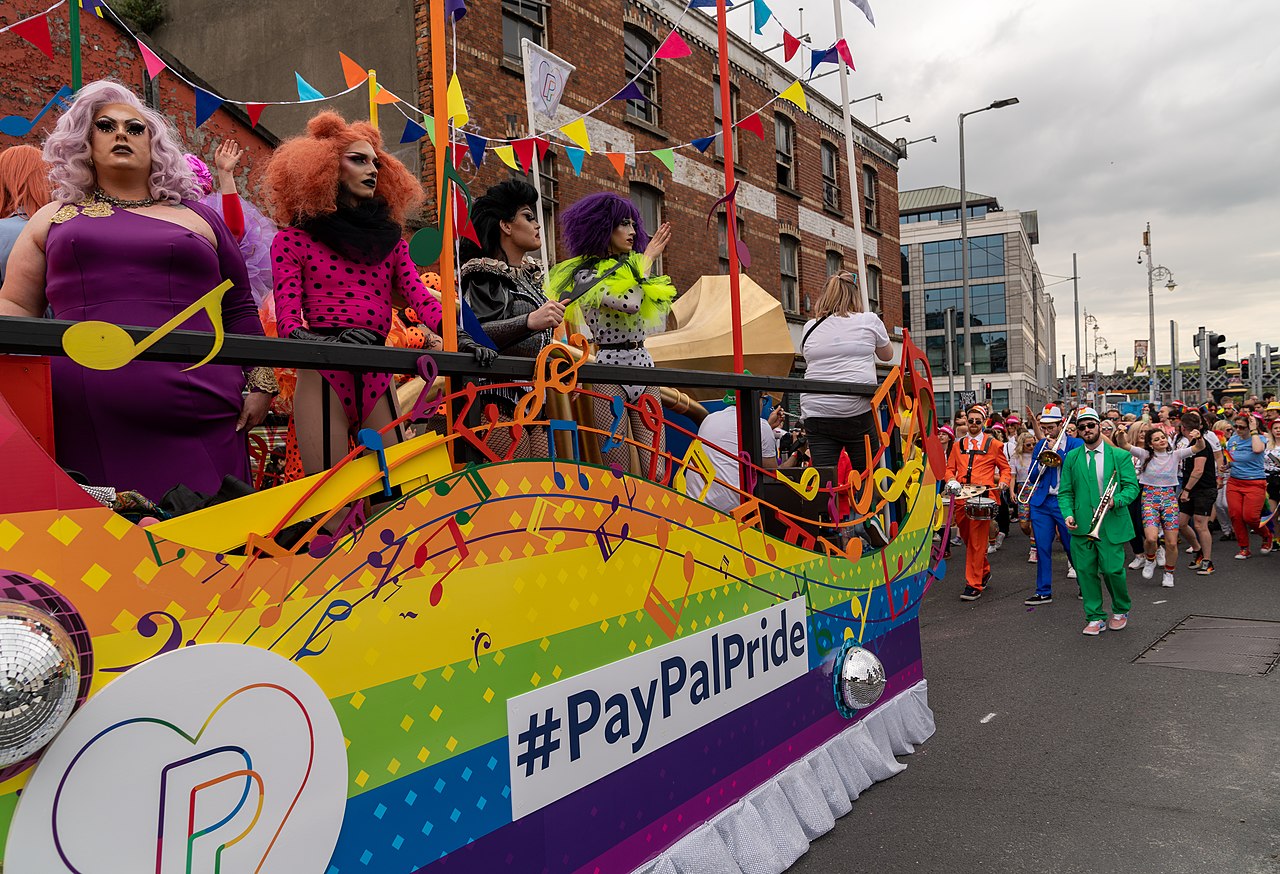Pride or pretence? Corporate allyship or mere marketing
In under a century, queer existence has shifted from police raids on gay bars to the police selling Pride-branded merchandise – a jarring journey culminating today in the awkward entanglement between queer liberation and rainbow capitalism. The term “pink pound” (or pink economy) was initially coined by The Guardian in 1984 to describe the purchasing power of gay men, but has now expanded to encompass the broader LGBTQ+ community. Yet commercial narratives playing on the reductive “DINK” myth (Double Income, No Kids) overlook the economic disparities faced by lesbians, the trans community, and queer people of colour. It also overlooks that historically, gay men are discriminated against in traditionally male-dominated industries.
Valued at £6 billion annually in the UK and $4 trillion globally, the pink pound’s influence continues to grow as Gen Z reshapes demographics, with 25% of Gen Z identifying as LGBTQ+, according to YouGov. Labelled as “inclusive consumers” by McKinsey, Gen Z are looking for brands that align with their social values, giving rise to authentic marketing and forcing corporations to engage or risk irrelevancy with a growing market. Yet this relationship reveals contradictions. While inclusive adverts boost brand value and profit, according to Unstereotype Alliance, many brands use rainbow branding only in ‘progressive’ markets. The selective activism fuels accusations of rainbow washing.
Critics argue that corporations have reduced liberation to a quick seasonal commodity
The most visible way that companies promote Pride Month is through sponsoring Pride parades. One of the most prominent examples is Pride in London, currently planned and funded by the London LGBT Community Pride C.I.C., which was formed in 2012. This event, with an annual membership fee of £7,000, or £5,250 for small and medium-sized businesses, has become one of the most high-profile platforms for corporate involvement in Pride Month celebrations, which forms part of the British tourism industry. The British Tourist Authority identifies a high level of interest among US gay tourists in visiting the UK.
Activism has found its place in the corporate world in the form of media consultants, who form guidelines to help companies craft authentic narratives. While increased visibility has arguably normalised queer identities, critics argue that corporations have reduced liberation to a quick seasonal commodity. Brands are churning out rainbow apparel made in countries with anti-LGBTQ+ laws while keeping their pride safely hidden in closets. According to YouGov, 75% of Britons and 79% of LGBTQ+ Britons view Pride marketing as PR, and only 7% of all Britons and 12% of LGBTQ+ Britons view it as sincere.
Despite the contradiction, corporate willingness to engage remains a potent driver for societal change and acceptance when backed by action. As former High Commissioner for Human Rights, Zeid Ra’ad Al Hussein has asserted: “businesses will not only have to meet their human rights responsibilities, but they must also become active agents of change.”
Symbolic gestures, like pronoun pins or mugs, ring hollow against legal decisions
Corporate pride reveals a spectrum of levels of commitment. Despite pledging £10,000 to the Albert Kennedy Trust and £1,000 to BeLong to Youth Services, M&S’s release of its “LGBT” sandwich was met with controversy. Meanwhile, London-based fashion designer Conner Ives, the man behind the “Protect the Dolls” t-shirt which redirected 100% of its profits to Trans Lifeline, was met with praise. The line between performative allyship and genuine support remains murky.
In 2019, the World Economic Forum entered into a collaboration with the Partnership for Global LGBTQ+ Equality, pledging to accelerate queer inclusion through the power of business. Yet for many, this promise feels distant. In recent years, growing backlash, particularly with anti-trans sentiment, has led marketers to scale back Pride campaigns. According to Gravity Research, nearly two-fifths of companies plan to scale back Pride-related engagement in the upcoming Pride month, with big names like PepsiCo and MasterCard dropping out. Many brands are favouring lower profiles in response to increased pressure from conservative activists and Republican policymakers.
This great corporate retreat during times when queer rights are under attack reveals a harsh truth. Symbolic gestures, like pronoun pins or mugs, ring hollow against legal decisions such as the recent UK Supreme Court’s unanimous ruling excluding trans women from the legal definition of women.

Comments